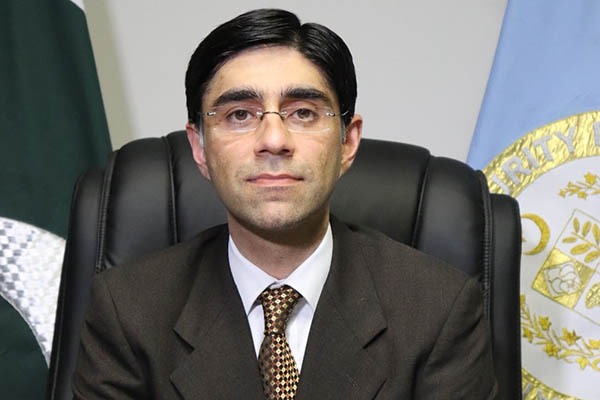
National Security Adviser Moeed Yusuf. Photo courtesy Islamabad Policy Research Institute
Moeed Yusuf claims society must stigmatize anyone who takes law into their own hands to ensure incidents like Sialkot lynching are not repeated
National Security Adviser Moeed Yusuf on Thursday advised Pakistani society to unite to stamp out intolerance, claiming that incidents such as last week’s Sialkot mob lynching can only be eradicated if individuals and groups learn that there will be zero tolerance for anyone who takes the law into their own hands.
Addressing the Sustainable Development Conference 2021 organized by the Sustainable Development Policy Institute, he claimed it was a mistake to describe as “extremism” incidents such the mob lynching of a Sri Lankan national, as it was an example of “intolerance” that could arise in any nation and needed to be eradicated.
According to a report published by state-run Associated Press of Pakistan (APP), he emphasized that a “whole-of-nation” approach was needed to stigmatize extrajudicial violence to achieve this. He said Prime Minister Imran Khan and the Pakistan Tehreek-e-Insaf (PTI)-led government were clear that state monopoly on implementation of laws could not be challenged through violence.
During his address, the NSA dismissed concerns of a terror resurgence in Pakistan, claiming security forces had boosted their capabilities and capacity, ensuring the defense of the country from all threats.
Afghanistan crisis
Commenting on the global response to the prevailing Afghanistan situation, he reiterated warnings of a looming humanitarian disaster in Afghanistan, noting that four million Afghans were on the brink of starvation due to sanctions against the Taliban that hampered humanitarian assistance. He said that banking sanctions, imposed by the U.S., had prohibited international donor agencies like the U.N. and Red Cross from using their bank accounts to provide humanitarian assistance.
“If they cannot operate then who else could help Afghans facing merciless cold weather during ongoing winters without anything. There is a liquidity crisis in Afghanistan as all banking channels are blocked,” he said, adding that Pakistan had pledged $30 million and lowered all regulatory duties to ensure humanitarian assistance could reach Afghanistan. He said it was “unethical” to question Pakistan’s preparedness for coping with a potential refugee crisis, noting Islamabad was already hosting four million Afghan refugees. Rather than question Pakistan’s role, he said, the international community should take steps to avert the crisis.
